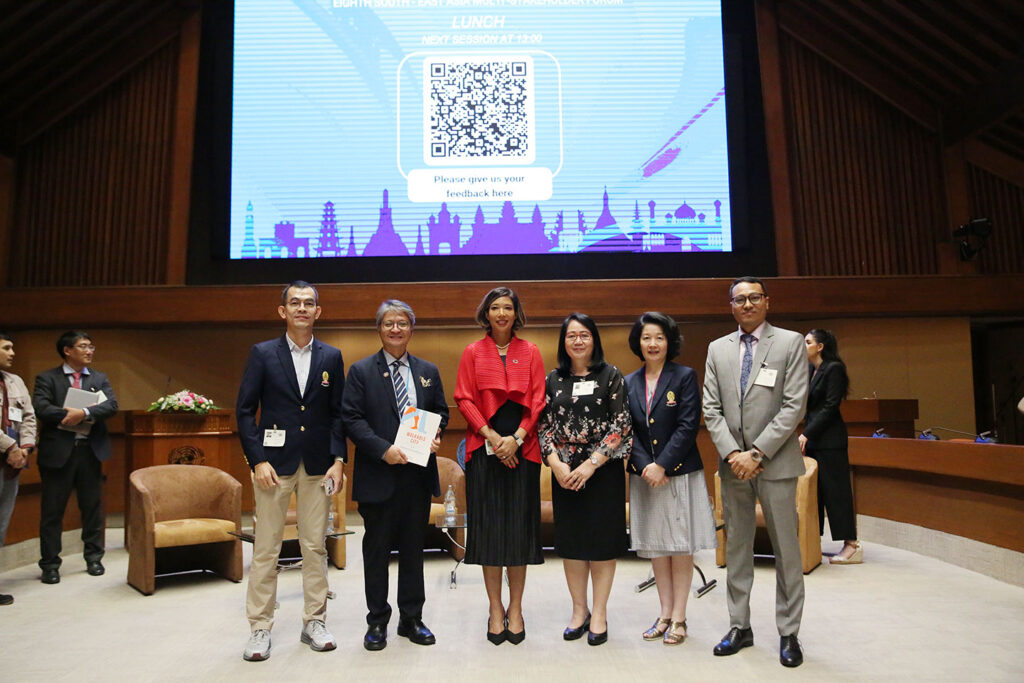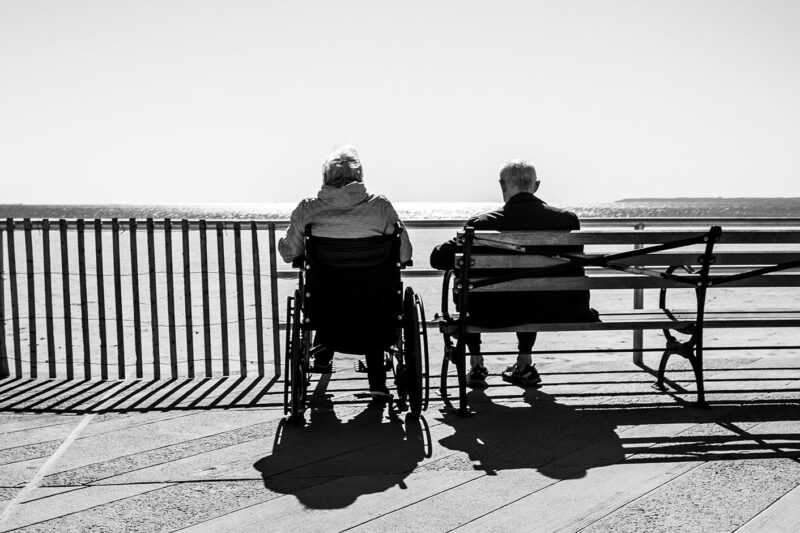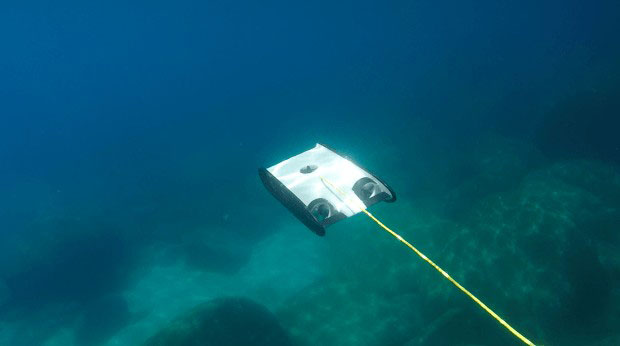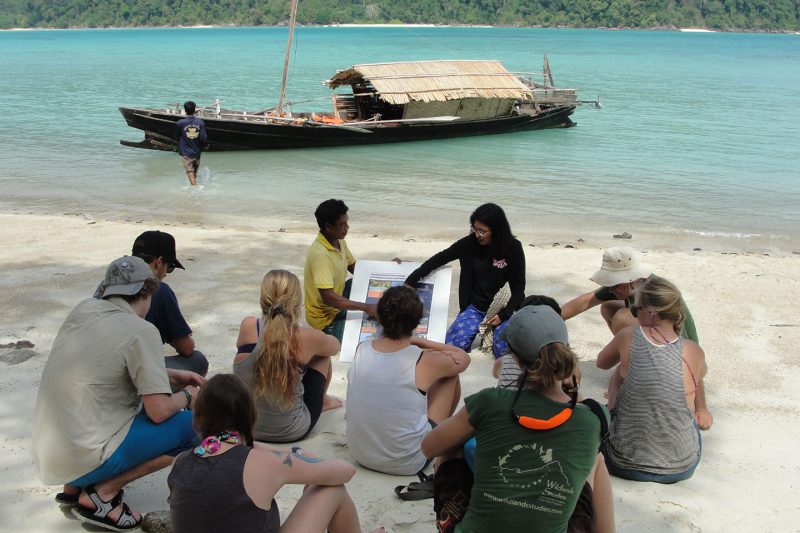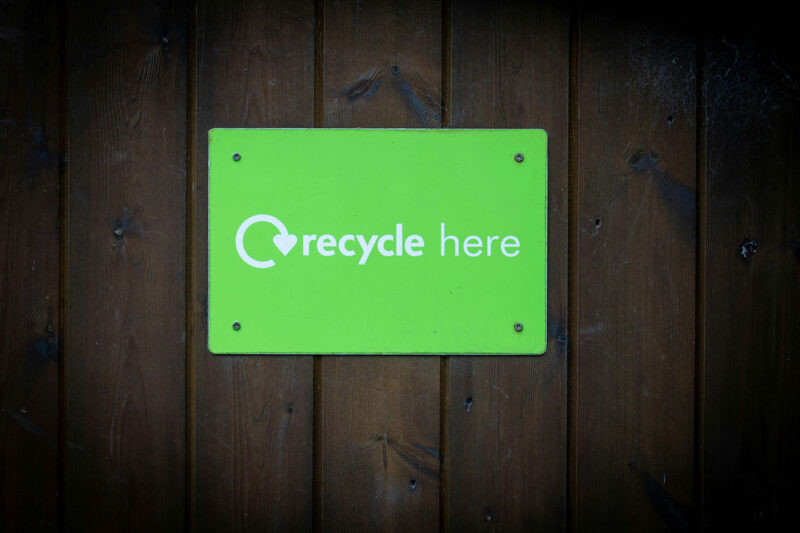Charting a Path for Global Engagement:
Chulalongkorn University to co-convene SDG session with the United Nations
On November 12, 2024, Chulalongkorn University, in collaboration with the United Nations Economic and Social Commission for Asia and the Pacific (UN ESCAP) Sub-regional Office for Southeast Asia, organized a session titled “Enhancing Urban Resilience: Integrating Health into City Planning and Infrastructure” during the Eighth South-East Asia Multi-Stakeholder Forum on the Sustainable Development Goals. The event was held at the United Nations Conference Centre in Bangkok, Thailand.
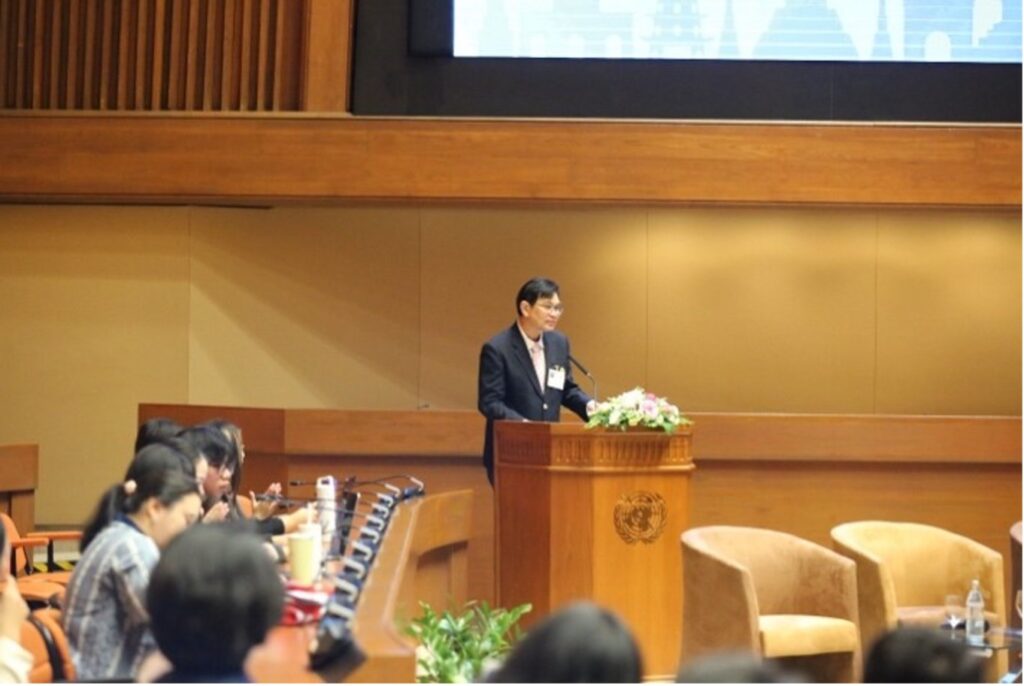
On behalf of Chulalongkorn University, Asst. Prof. Sarayut Supsook, Dean, Faculty of Architecture, opened the session. The discussions delved into the crucial intersection of urban infrastructure and public health, underscoring the importance of well-designed cities in promoting positive health outcomes.
Key presentations included:
- “Weaving Health for Families, Communities, and Societies” by Mr. Hiromasa Okayasu, Director of Healthy Environment and Population (DHP) at the World Health Organization
- “Urban Planning for Sustainable Cities” by Assoc. Prof. Dr. Niramon Serisakul from the Department of Urban and Regional Planning at Chulalongkorn University
A dynamic panel discussion followed, featuring experts and youth delegates:
- Mr. Hiromasa Okayasu, Director of Healthy Environment and Population (DHP) at the World Health Organization
- Assoc. Prof. Dr. Niramon Serisakul, Department of Urban and Regional Planning at Chulalongkorn University
- Assoc. Prof. Capt. Dr. Siriphan Sasat, Director of the Centre for Health and Well-being Promotion for Older People, Faculty of Nursing, Chulalongkorn University
- Mr. Joevie A. Dela Cruz, representing the Association for the Rights of Children in Southeast Asia, the Philippines
- Mr. Abhishet Varama, a student from the Faculty of Medicine, Chulalongkorn University
Additionally, student representatives from Chulalongkorn University presented a social innovation project developed during the APRU SDG Education for Global Citizenship program, offering fresh insights into integrating health and sustainability into urban development.
This session not only highlighted the need for an integrated approach to urban resilience but also showcased innovative solutions and perspectives from academia, civil society, and students, reflecting a collaborative commitment to shaping healthier, more sustainable cities for the future. The event was organized in hybrid and was attended by around 230 participants.
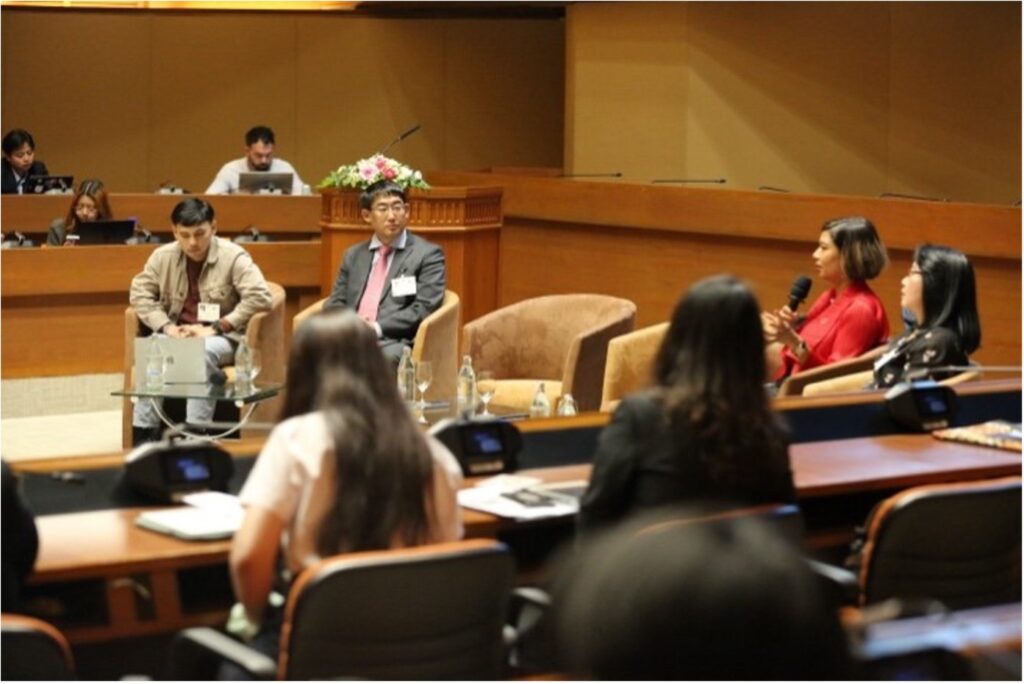
Reflection essays from Chula Students:
From Overwhelmed to Empowered: My Experience at the Eighth South-East Asia Multi-Stakeholder Forum on the SDGs
Ho Bao Chau Le, Faculty of Medicine
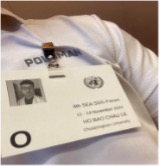
A Life-Changing Opportunity
As an international student from Vietnam, currently studying at Chulalongkorn University, I have always believed in the transformative power of education. That belief became a reality when I was privileged to attend the Eighth South-East Asia Multi-Stakeholder Forum on the Sustainable Development Goals (SDGs).
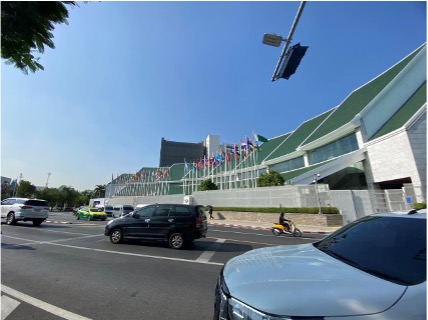
Walking into the forum, I was both excited and a little overwhelmed. The room was filled with policymakers and experts, individuals who seemed to have already made tangible impacts on the world. As a student, I initially wondered if I could contribute meaningfully. However, as the event unfolded, I realized this was not just an opportunity to listen but also a chance to learn, connect, and grow.
Insights That Resonated
The forum was a treasure trove of knowledge, but one session that truly stood out was Assoc. Prof. Niramon Serisakul’s presentation, “Building Healthy and Resilient Cities: Integrating Health and Urban Planning for Sustainable Communities.” She shed light on the critical relationship between urban planning and public health, emphasizing the need for resilient, community- focused development.
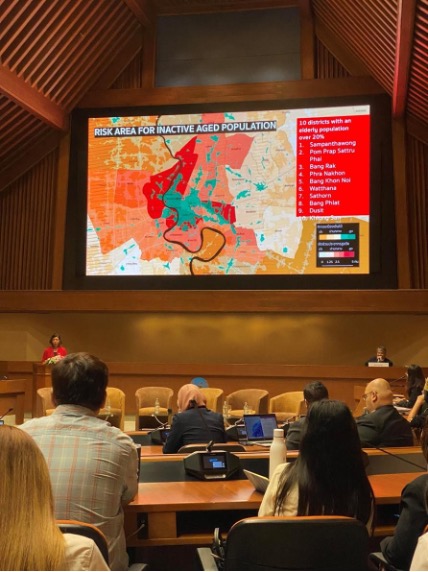
What struck me most was her introduction to the book Walkable City, which explores how thoughtful urban design can promote healthier, more connected lifestyles. Though the book is currently only available in Thai, she expressed hope for an English translation soon. It left me eager to explore how these principles could be applied in cities like mine.
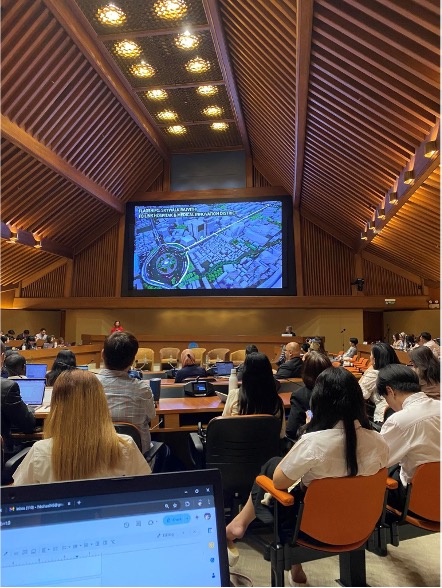
Connecting Bangkok and Ho Chi Minh City
As I listened, my thoughts kept returning to my hometown, Ho Chi Minh City. Like Bangkok, it is a dynamic metropolis growing at a rapid pace. Both cities are centers of opportunity, culture, and innovation, yet both face challenges such as traffic congestion, air pollution, and insufficient green spaces.
The ideas presented at the forum felt immediately relevant. Concepts like integrating green urban spaces, improving public transport, and creating walkable neighborhoods are not just theoretical solutions; they are urgently needed strategies. Witnessing Bangkok’s efforts inspired me to envision how similar approaches could be adapted for Ho Chi Minh City.
Being an international student in Bangkok has given me a unique perspective on the interconnectedness of urban challenges. Both cities have much to learn from each other, and I feel a growing sense of responsibility to contribute to creating healthier, more sustainable urban environments.
Every Voice Matters
Initially, I was hesitant to engage, however, as the forum progressed, I realized that every voice matters. The experts I met were not untouchable visionaries, but individuals driven by passion and a shared commitment to change. By the end of the forum, I felt not only honored to be part of such a meaningful event but also deeply responsible. Achieving the SDGs is not just the work of governments or large organizations; it requires active participation from every individual.
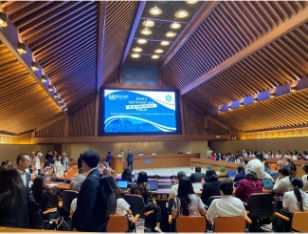
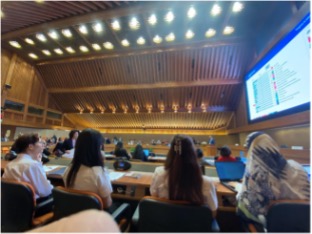
Gratitude and Hope
I owe immense gratitude to Chulalongkorn University for making this experience possible. The university’s commitment to sustainability and global citizenship is evident in its support for students and faculty alike.
Leaving the forum, I felt hopeful and determined. Sustainability does not demand extraordinary action; it requires consistent, collective efforts. I am committed to channeling what I have learned into creating positive changes in my community and beyond.
Let us take action, no matter how small. Together, we can make the SDGs a reality. The time to start is now.
Youth Participation in the Eighth South-East Asia Multi-Stakeholder Forum on SDGs Rawiporn Tangkunnasombat, Faculty of Communication Arts
Urbanization brings numerous challenges for youth, from air pollution caused by gas emissions to overcrowding, environmental degradation, and strained infrastructure. As a youth navigating these challenges, I had the opportunity to participate in the Eighth South-East Asia
Multi-Stakeholder Forum on the Sustainable Development Goals (SDGs). One of the goals of this forum aims to integrate key SDGs to address urban issues while fostering collaboration among governments, development partners, civil society, academia, and the private sector.
I am Rawiporn Tangkunnasombat, a Communication Management student at Chulalongkorn University, and I had the opportunity to learn from diverse stakeholders about the progress of the 2030 Agenda for Sustainable Development and the innovative practices driving its implementation.
Insights from the Voluntary National Reviews Workshop
The forum began with a Voluntary National Reviews (VNR) workshop on November 11. This session facilitated the exchange of good practices in preparing evidence-based VNRs and voluntary local reviews (VLRs) in Southeast Asia. Through the workshop, I gained a deeper understanding of the VNR process, which serves as a tool to share sustainability practices and monitor progress toward the SDGs. The emphasis on data trends, particularly qualitative studies, highlighted the critical role of evidence in advancing sustainable development. I left with a strong appreciation for how actionable data can accelerate SDG achievement.
Session Highlights: Health, Well-Being, and Resilient Cities
I attended Session 1: SDG 3 – Good Health and Well-Being, titled “Building Healthy and Resilient Cities: Integrating Health and Urban Planning for Sustainable Communities.”
This session explored sustainable solutions to ensure health and well-being for all city residents, regardless of gender, age, or disability. Experts proposed innovative approaches such as smart planning, technology, and regional cooperation.
- Assoc. Prof. Niramon Serisakul from Chulalongkorn University’s Faculty of Architecture shared her expertise on smart planning. Her projects demonstrated how inclusivity and well-being can be achieved through sustainable urban design, offering adaptable practices for Thailand’s urban development.
- Abhishet Varama, also from Chulalongkorn University, presented a mobile application that connects patients with medical care and consultation. His work illustrated how technology, in the face of climate challenges, can guide us toward positive change.
Both presentations underscored the potential of innovative thinking to overcome urbanization challenges while promoting health and well-being for everyone.
Youth Engagement and My Contribution
I was honoured to contribute to this forum by sharing my perspective as the founder and former president of NewWave, a youth consulting club dedicated to supporting small and medium-sized enterprises (SMEs) through youth-driven initiatives Thai Version / English Version
During the session, I emphasized the need to shift the mindset around sustainability. Many view it as costly and not a problem that youth can resolve. I argued that empowering people to view sustainability as a means to extend time and resources for future generations is crucial and that youth can play an active role in this progress. My intervention proposed investing in youth training to encourage youth to think globally and act locally.
Public health and urban development are critical for all generations, yet young people are often excluded from these discussions. I posed a question to the experts: “How can youth engage in public health and urban development, given that these fields often seem reserved for policymakers and professionals?”
Their thoughtful responses highlighted the importance of creating spaces for youth participation. I acknowledged the unique strengths that young people bring – resources, knowledge, and experiences. I believe that youth should not be seen as victims of climate change but as active problem-solvers. To achieve the SDGs’ principle of “leaving no one behind,” it is vital to ensure that youth are included in the impacts and progress toward solutions.
I am deeply grateful to Chulalongkorn University and the United Nations Economic and Social Commission for Asia and the Pacific (UNESCAP) for organizing this forum and providing a platform for youth voices.
This experience has been transformative, equipping me with new knowledge, inspiration, and the determination to continue contributing to sustainable development efforts, by learning from experts and discussing with other young leaders.
By Office of International Affairs and Global Network
Others
From Life of Sea Nomads to Sustainable Development of Ethnic Groups
“Security and sustainability should be based on the beliefs and the way of life of the traditional community.”

